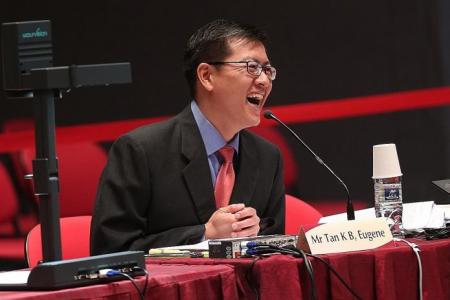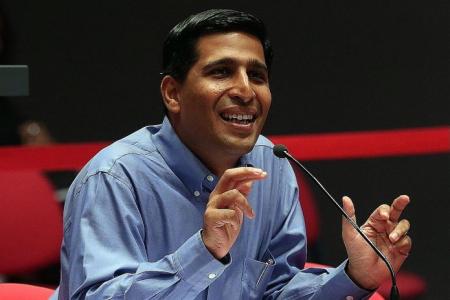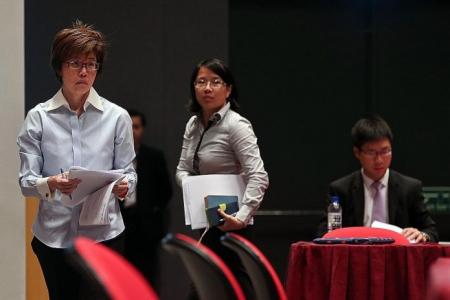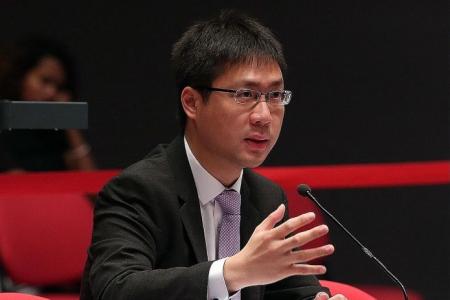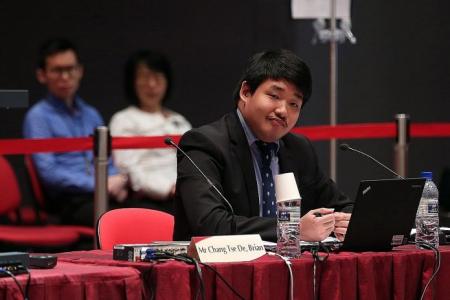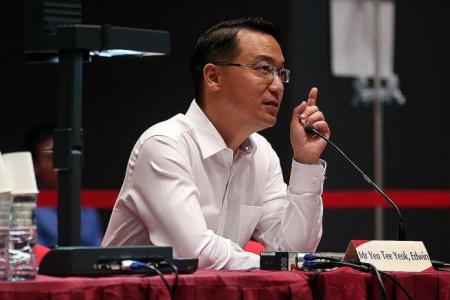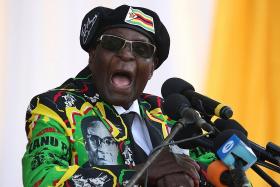Diversity key issue in first hearing on elected presidency
The Constitutional Commission received over 100 submissions from the public on the review of the elected presidency. Five individuals and gender equality advocacy group Aware were invited to clarify their submissions in the first public hearing at the Supreme Court yesterday.
ASSOCIATE PROFESSOR EUGENE TAN
Singapore Management University law don
On the issue of qualifying criteria of the elected presidency, Prof Tan said that while it should be updated, it should not be raised too significantly as it may shrink the pool of suitable candidates.
As for ensuring minority representation, Prof Tan feels strongly that they should not "tinker with free and open elections for the presidency".
One of his suggestions to address the concern of minority representation is that the elected President must pass a certain voting threshold among minorities, in addition to getting the most votes.
Addressing Commission member Chan Heng Chee's question of how this would work as votes are secret, Prof Tan suggested colour-coding the ballot sheets by race.
In response to Prof Tan's point on qualifying criteria, Chief Justice Sundaresh Menon, who heads the Commission, argued that Prof Tan's concern may be "overstated" because the number of companies that fit the qualifying criteria of $100 million paid-up capital have increased from 158 in 1993 to 2,100 today.
DR MATHEW MATHEWS
Senior research fellow, Institute of Policy Studies
Some safeguards might be needed to ensure a minority candidate, said Dr Mathews.
He called for "minority elections" to be reserved for candidates from a particular racial group only if there is no president from that race for a set number of terms. The minority candidate must still meet the eligibility criteria.
MS CORINNA LIM
Executive director, Aware
MS JOLENE TAN
Senior Manager, Programmes and Communications, Aware
The qualifying criteria which requires a candidate to run a company with a paid-up capital should be decreased from $100 million to $50 million. This will allow more people - including women and minorities - to qualify.
Ms Lim noted that historically, the Council of Presidential Advisers (CPA) is made up entirely of men.
Ms Tan said: "Sitting at the pinnacle of the organisational hierarchy does not necessarily mean you are the best person for the position. As an elected President, you are also expected to appeal to a certain vision and set of values."
MR LOKE HOE YEONG
Associate fellow, European Union Centre in Singapore
There should be flexibility in the system to ensure minority representation without compromising the principles of democracy, said Mr Loke.
He suggested that two candidates run together, and one of them must be from a minority group. The minority candidate could become either the President or Vice-President.
In addition, the Vice-President would take on the role of either the Speaker of Parliament or the chairman of the CPA.
MR BRIAN CHANG
Human rights researcher
Mr Chang cautioned against "race-based politics", by citing the International Convention on the Elimination of All Forms of Racial Discrimination, a United Nations treaty which Singapore signed last October.
He suggested creating a Vice-President's office. To increase the electoral legitimacy of the CPA, the Vice-President would be a member of it.
It would be a two-ticket race where the two candidates must be of different races. Each candidate will take half the term.
MR EDWIN YEO
In-house legal officer
To avoid having a divisive President, Mr Yeo suggested a hybrid method to elect one, which involves nomination by the Government and voting by the electorate.
The Prime Minister, in consultation with an independent council, will nominate a candidate to provide accountability for the nomination.
The public will then vote "yes" or "no" to the candidate.
If the candidate is not accepted by the electorate, this will mean the Government has lost the confidence and support of the people and perhaps this should trigger the dissolution of Parliament and the need for fresh elections, said Mr Yeo. He suggested that a third rejection would be the threshold for a new Government to be formed.
This would also address concerns of a rogue government that is trying to appoint someone to tap on the reserves, he added.
Addressing Justice Tay Yong Kwang's concern that this means the"election process can take 10 years and there would still be no President", Mr Yeo argued that as the presidency is an important office, they should "get it right".

What is the Constitutional Commission?
In February, Prime Minister Lee Hsien Loong appointed the Constitutional Commission to study and make recommendations on aspects of the elected presidency.
The three areas he highlighted: reviewing the qualifying criteria of presidential candidates, whether the views of the Council of Presidential Advisers should be given greater weight and how to ensure that minorities have a better chance of being elected.
The nine-member Commission, chaired by Chief Justice Sundaresh Menon, had received a little over 100 written submissions on the elected presidency, after it invited the public to send in their views earlier this year.
Contributors of 20 written submissions were invited to appear before the Commission to make oral representations and provide clarifications in public hearings, with the first one taking place yesterday.
The hearings will be held at the Supreme Court auditorium and three more sessions are scheduled for April 22, April 26 and May 6, between 9.30am and 5pm. They will be open to the public.
The Commission expects to submit its recommendations by the third quarter of this year.
Get The New Paper on your phone with the free TNP app. Download from the Apple App Store or Google Play Store now

